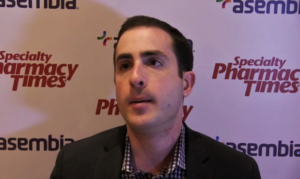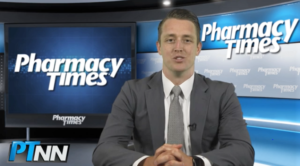- The Future of Connected Devices in Medication Therapy Management (specialtypharmacytimes.com)
Josh Stein, CEO and co-founder of AdhereTech, discusses how technology can enhance the ability of specialty pharmacies to manage their patients' therapy regimen.
- How Uber will Redefine Healthcare (realclearhealth.com)
I’ll respectfully disagree: Healthcare "Ubers" are already proliferating and will ultimately reshape 21st-century medicine. The more aspects of healthcare we can shift from relationship to transaction, the better life will be for patients and doctors alike..."Uber for X, Y or Z" means "making something easy and convenient." But Uber is also about safety, reliability, and civility...Uber’s true essence is this: It accumulates a vast amount of information on the micro-details of cities; overlays that information with real-time data on prospective drivers, riders, and road conditions; reduces staggeringly complex decision trees to algorithms; and instantly presents drivers with a manageable number of highly intuitive options. It thus obliterates the learning curves and fixed costs that such information previously demanded...Uber establishes, digitizes, and stores relationships to make transactions possible...To shift some (not all) of healthcare from relationship to transaction, we’ll have to imitate what Uber did: Accumulate vast databases of population health care information. Develop better and more comprehensive telemetry for real-time tracking. Apply artificial intelligence to discern patterns no intuitive physician can see and to narrow down treatment options. And package this information for instant comprehension by patients and providers...some aspects of healthcare will be impervious to Uber-like innovation...As we convert more and more of medicine to transactions—and we will—patients will find it easier to tend to their health, and doctors will find themselves freer to focus on those areas where relationships are truly irreplaceable...
- This Week in Managed Care: July 9, 2016 (ajmc.com)
Justin Gallagher, associate publisher of The American Journal of Managed Care. Welcome to This Week in Managed Care from the Managed Markets News Network
- This Week in Managed Care: July 2, 2016 (ajmc.com)
Justin Gallagher, associate publisher of The American Journal of Managed Care. Welcome to This Week in Managed Care, from the Managed Markets News Network.
- This Week in Managed Care: July 16, 2016 (ajmc.com)
This Week in Managed Care...Cate Douglass with The American Journal of Managed Care.
- Report says U.S. could save billions by getting diabetes patients to take their meds (fiercepharma.com)IMS Health Study: Low Levels of Adherence and Persistence Remain Barriers to Reducing the Costs of Diabetes Complications (imshealth.com)
Worldwide, less than half of Type 2 diabetes patients are taking their medicines in an "optimal" manner, according to a new report, leaving plenty of room for improvement for stakeholders seeking to reduce the billions of dollars associated with poor drug adherence...the IMS Institute for Healthcare Informatics said "sub-optimal" drug adherence is resulting in a "significant economic and societal burden" plus "avoidable" disease complications for patients...less than 40% of patients around the world are fully complying with their treatment instructions...ready to listen to the suggestions are health officials who've been seeking ways to pay for new, groundbreaking medicines without breaking the bank. Cutting down on avoidable costs would seem to make an approachable target in that effort...
- Infection experts warn of more U.S. superbug cases in coming months (reuters.com)
After two confirmed U.S. cases of a superbug that thwarts a last-resort antibiotic, infectious disease experts say they expect more cases in coming months because the bacterial gene (mcr-1) behind it is likely far more widespread than previously believed...Army scientists...reported finding E. coli bacteria that harbor a gene which renders the antibiotic colistin useless...The mcr-1 superbug has been identified over the past six months in farm animals and people in about 20 countries...Health officials fear the mcr-1 gene, carried by a highly mobile piece of DNA called a plasmid, will soon be found in bacteria already resistant to all or virtually all other types of antibiotics, potentially making infections untreatable...Within the next two to three years, it's going to be fairly routine for infections to occur in the United States for which we have no (effective) drugs available...mcr-1 will find its way into carbapenem-resistant bacteria…the resulting virtually impervious bacterium would likely spread slowly inside the United States because CRE themselves are not yet widespread in the country, giving drugmakers some time to create new antibiotics...
- Pharmacy Week in Review: July 15, 2016 (pharmacytimes.com)
Mike Glaicar, Business Development: Pharmacy Times...(PTNN) This weekly video program provides our readers with an in-depth review of the latest news, product approvals, FDA rulings and more.
- Diabetes sales rocket toward $60B, with Novo and Lilly’s GLP-1s first in line for growth (fiercepharma.com)
Two sides of one coin will keep diabetes drug sales growing--big time--through 2025. The disease is growing fast around the world, and treatment arbiters advise a more aggressive approach to blood-sugar control...Combine those two drivers, and diabetes will account for almost $60 billion in 2025 sales across 9 major global markets, GlobalData analysts say in a recent report...But this rising tide of sales won’t lift all treatments equally...Best positioned for growth? GLP-1 drugs, they say, which are poised to grow by 12.4% annually through the next decade...Right now, only a small number of patients are actually hitting blood glucose targets of 7% to 7.5% A1C levels...Doctors are pushing harder to hit those goals, so the number of people needing a second or third add-on drug will mushroom over the next 10 years. "[W]e’ll treat these people fairly aggressively" to get to those A1C levels..."[W]e are not going to tolerate people after 8.5% and 9% like we used to."...despite public health campaigns and awareness campaigns, people will "continue to overeat and under-exercise and they are going to see their weight continue to go up, and therefore their need for more medications will go up with it,"...
- Pharmacy Week in Review: July 8, 2016 (pharmacytimes.com)
Mike Glaicar, Business Development: Pharmacy Times...(PTNN) This weekly video program provides our readers with an in-depth review of the latest news, product approvals, FDA rulings and more.










